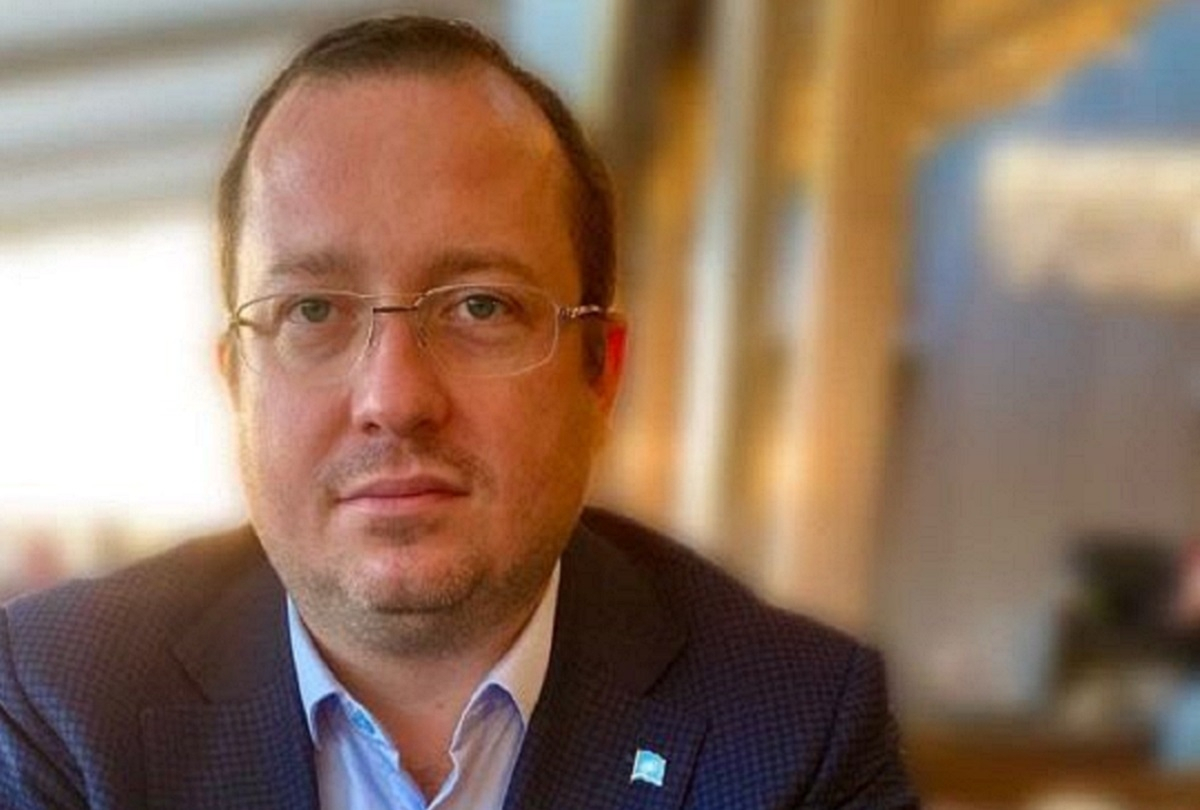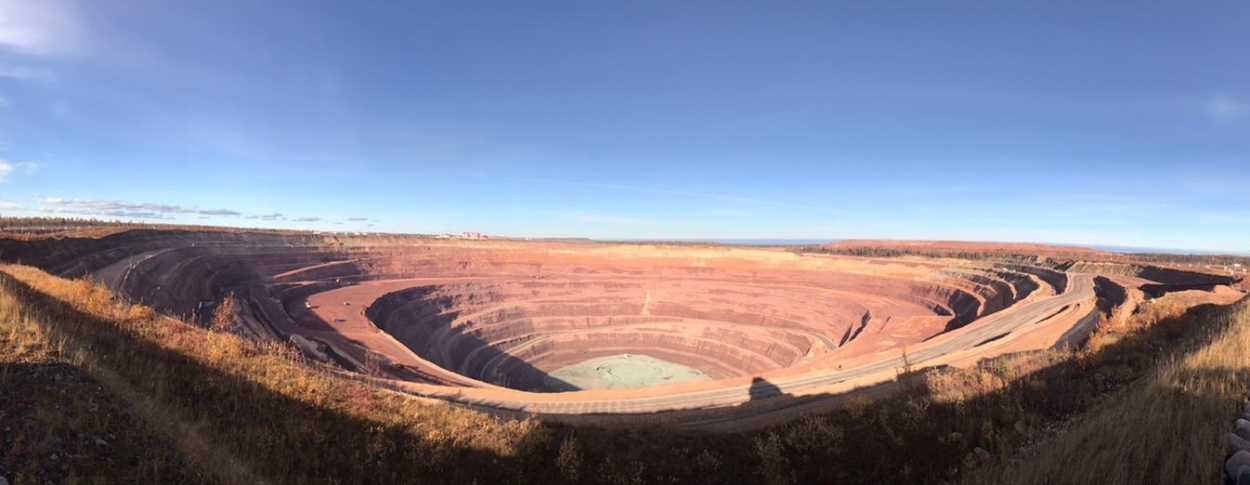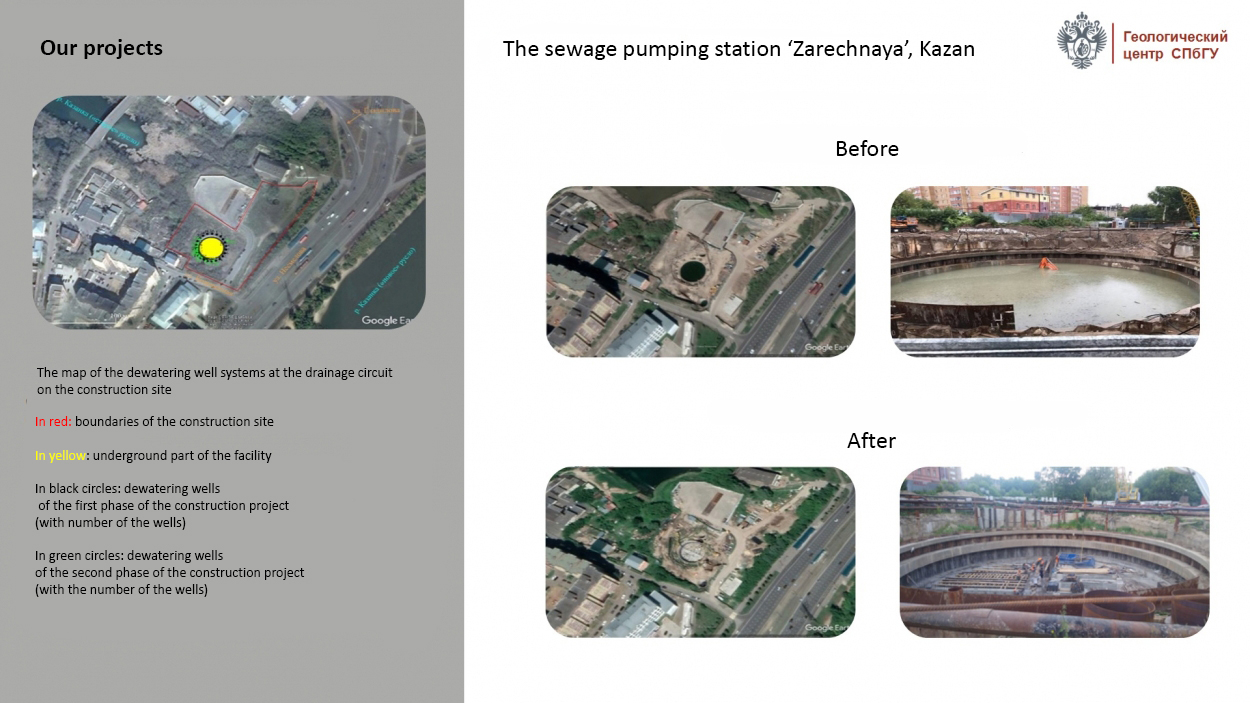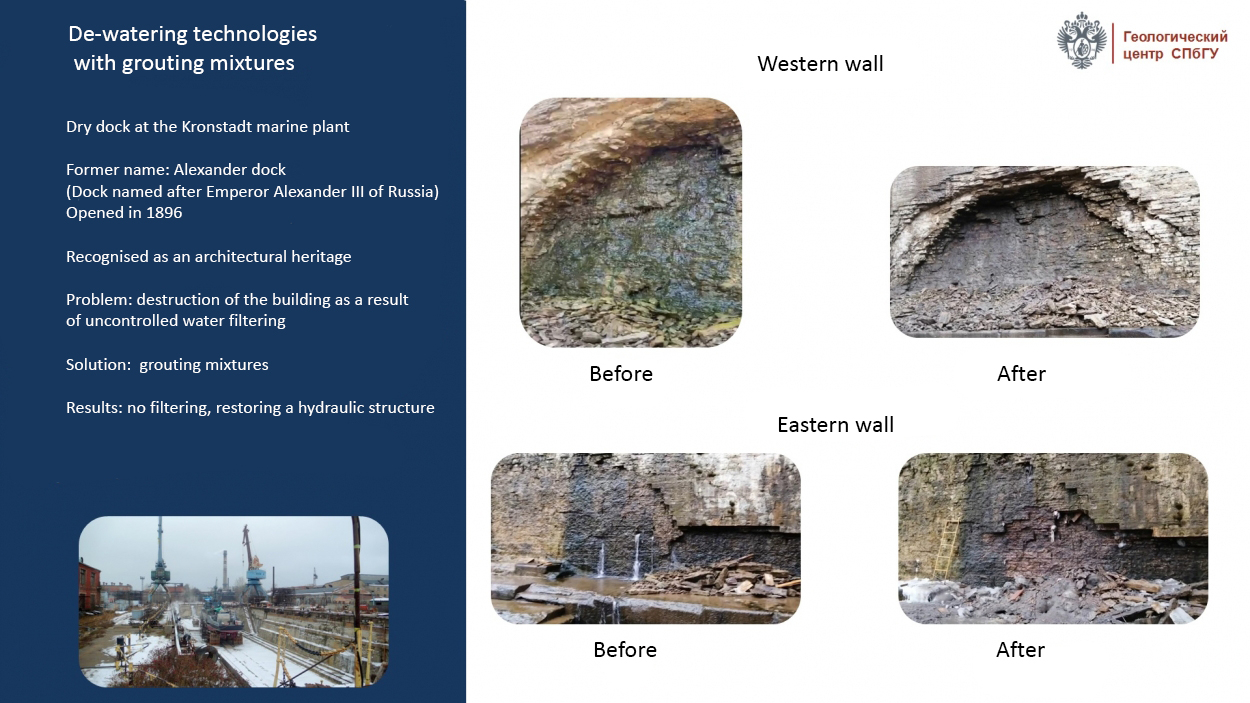St Petersburg University Centre for Geology: geological exploration, geo-technologies, IT-projects, and regulatory drafting

Established in 2011, the small innovative enterprise ‘St Petersburg University Centre for Geology’ delivers a range of service in geological exploration to the world’s and Russia’s leading oil and mining companies. It is also a provider of construction and building services and engaged in research to ensure its results are at the core of the state-of-the art development. Aleksei Tudvachev, Deputy Director of the Centre for Geology, provided an insight into the current projects and plans for the future.
The St Petersburg University Centre for Geology has been working for over 10 years. How do you assess the Centre has been developing?
We have surpassed what we were expected to achieve, in my opinion. Initially, the centre was set to focus on bringing together workforce to manage projects in a range of spheres. Today, the centre is an independent company with industry specific experts and a range of support services, including purchasing, contracting, and public sector. We are constantly expanding the scope of what we can offer. How we run the company is no less essential than what high-calibre researchers and engineers we have.
Importantly, we have experts from: the United Nations; the International Association of Hydrogeologists (IAH); the Central Committee for the Development of Groundwater and Underground Structures at Rosnedra; the State Committee for Mineral Reserves of the Russian Federation; and the State Environmental Expertise of Rosprirodnadzor to name but a few. We can boast to have among our employees St Petersburg University graduates and graduates from other universities. At the Centre for Geology, we provide opportunities to pass on experience we have gained so far to early-career workforce. This means we encourage continuous development.
What partners and customers, including international ones, do you collaborate with?
We are involved in all spheres where geological exploration, water supply and waste water disposal are essential. Among these spheres are mining, refining industry, housing, building and construction, and ecology.
We work with the world’s leading oil companies. Among them are Exxon Mobil and Shell. We also work with the Russian oil companies.

Last year, we started cooperation with Tatneft. We also work with mining companies: Uralkali, Polymetal, and Polyus. They are engaged in gold mining. We develop design solutions for the National Operator for Radioactive Waste Management (NO RAW, State Atomic Energy Corporation Rosatom). We cooperate with Rosgeo, namely with the Angarsk Geological Expedition, on the projects in Siberia. The Angarsk Expedition drills hydrogeological wells to supply water to the largest gold deposit.
In hydrogeology, we are actively collaborating with partners at ‘VTS Project’ in the Republic of Tatarstan. What they focus on is design and construction of water supply systems, wastewater disposal and treatment facilities. Several years ago, our experts solved an unmatched task to eliminate emergency water inflows during the construction of a sewage pumping station in Kazan. It is the largest station in Europe that was built by dewatering method and satisfies needs in water disposal of a million people. The Republic of Tatarstan oversaw all the process. It was a successful cooperation, and we started to conduct turnkey projects in geology, hydrogeology, design, construction, and putting facilities into operation.

We are planning to go beyond our domestic market. Many regions are experiencing water supply and waste water disposal problems. This August, representatives from Brazil visited the University. Yet the tense epidemiological situation is impeding what we are planning to achieve and we cannot start collaboration properly. I think this is a matter of months.
We are currently preparing a partnership agreement with one of the world's largest Chinese engineering and construction companies.
Since the Soviet times, Russia can boast a strong school of hydrogeology. Many small countries have never developed this branch of geology. They invite experts from the USA, Great Britain, and Italy. We can perform high-quality work at competitive prices. We hope to cooperate with the University more closely to ensure international engagement. We do good things together, i.e. provide people with water.
What are the most in demand services you offer?
What we do can be represented in several blocks. First, research projects for various purposes. How they are relevant and whether they are in demand can be seen by tasks set by our customers. For example, we often have to deal with legal issues in our industry, and we are often asked to conduct research to present the results and outcomes to higher authorities.
Second, subsoil resources management. Those who work with groundwater or are involved in the extraction of oil or solid minerals, use subsoil resources. According to the Federal Law ‘On Subsoil’, they are obliged to perform geological exploration of subsoil and be engaged in design. Fulfilment of these obligations within the framework of the licence ensures that the company is most in demand on the market that offers services for the use of subsoil. We provide high-quality services and use the results of intellectual activity. This ensures we have no rivals in our sphere.
Third, emergency. When mines or construction sites are flooded or there is oil pollution, it is essential to be able to quickly make a decision to carry out relevant works and provide scientific and methodological justification. Our experts have extensive experience in this sphere and use the results of intellectual activity, innovative technologies and approaches.
Could you tell us about your most recent projects?
Among the most engaging projects was construction of the sewage pumping station in Kazan, as I have already mentioned. We used unique grouting mixtures developed at the St Petersburg University Centre for Geology. We managed to successfully use them in difficult conditions, when groundwater pressure remained strong even after dewatering. We also solved the long-term problem of flooding in the docks of Kronstadt. Recently, we have opened a drilling and geotechnology department to conduct experiments to improve the grouting mixtures.

We are actively working with housing and communal services in Krasnodar and the Rosvodokanal group. We are currently assessing the groundwater reserves of the Krasnodar deposit, which supplies water to the whole city. In Krasnodar, we performed unmatched technical works. Our hydrogeologists made calculations to prove that it was possible to increase the productivity of water wells. Earlier, a well could produce about 25-30 cubic metres per hour. Now it is possible to increase its productivity up to 65 cubic metres. What is important is this is not the limit.
We are engaged in IT projects and provide assistance with developing software for oil companies and nuclear industry to optimise geological exploration and oil production.
Importantly, international organisations and government bodies of the Russian Federation engage us in regulatory drafting. For example, we as part of the group were involved in drafting the rules to develop groundwater deposits in the Russian Federation. They were approved by the Ministry of Justice of the Russian Federation and are currently in operation. Today, our experts and experts at the State Committee for Mineral Reserves are developing a unified world classification of the UN on groundwater as part of the UNECE working group.
Among the today’s pressing issues is one that relates to the search for aquifers, assessment of water reserves, arrangement of wells and their modes of operation. Our position is that being able to take water of proper quality is no less important than being able to supply water. To this end, special well designs are used, which must be hermetically arranged so that contamination from the surface and overlying strata cannot enter an aquifer. Unfortunately, groundwater pollution by overflow behind the casing is a widespread problem in Russia. Moscow, St Petersburg, and the Leningrad Region are not an exception. Not to mention the Republic of Crimea where there is a need to re-drill old water wells. The Soviet regulations are rather dated as are the rules for drilling and abandoning wells. In fact, there is no regulatory documentation. There is no control over drilling companies. So many formations are already contaminated. Subsequently, pollution is increasing. It is like a time bomb. There are alien substances in the composition of groundwater.
How does the Centre for Geology collaborate with the St Petersburg University Research Park?
We were carrying out a fundamental project ordered by Rosneft. It was related to the justification of the extraction of hard-to-recover hydrocarbon reserves. The experts at the Research Park conducted serious experiments to study surface phenomena at the border of oil, water and rocks to obtain new fundamental data to use in practice.
We are interested in continuing our cooperation with the St Petersburg University Research Park and recommend our partners and subsoil users to contact St Petersburg University. We would like the Research Park to be in demand and increase the number of their accredited experts and certified methods.
Among your experts there are Doctors of Sciences and Candidates of Sciences who have patents and their own research and development projects. Does using these innovation technologies help you successfully compete with your competitors?
Yes, it does. Innovative developments such as software or filtration technologies that have no rivals in the world, grouting and waterproofing technologies are our competitive advantage. Yet our main value is our high-calibre staff who know how to work in a team and are willing to help each other.
Could you tell us about your plans?
We are planning to improve in geotechnology and waterproofing, be more engaged in international collaboration and engagement, and expand our presence in the regions of Russia. The Far East region seems especially promising. We started working there in 2020. What we had seen was a shortage of specialists and qualified companies and a huge amount of work related to the search for groundwater, development of quarries, and geological exploration of various types of minerals.
Among the most important areas today is decarbonisation. The Centre for Geology has relevant competence to assess the potential for the utilisation of carbon dioxide into the subsoil and aquifers. We have delivered a plenary report at the Tatar Petrochemical Forum this year. We are currently working on technologies to capture and place CO2 in the subsoil.

